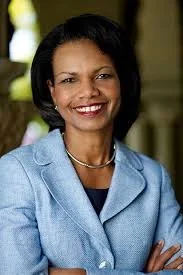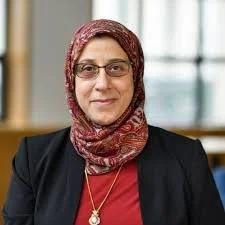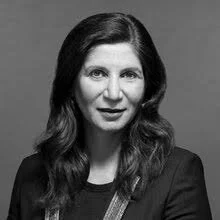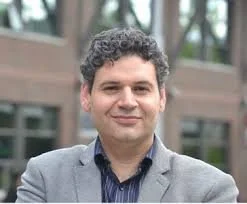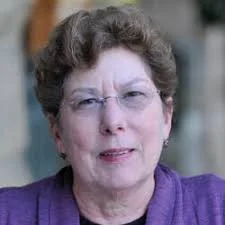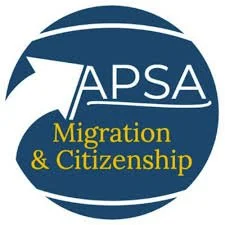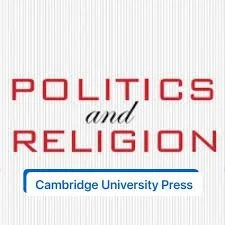Academic Research
During her time at Stanford University, Dr. Rachel Gillum led the design and implementation of the Muslim American National Opinion Survey (MANOS) — one of the first nationally representative surveys of Muslim Americans conducted in the United States.
At a time when questions about Muslim Americans' integration, loyalty, and national belonging dominated political discourse, Rachel’s research offered critical, data-driven insight into a community often spoken about but rarely studied with nuance. Her work challenged prevailing narratives by providing robust quantitative and qualitative evidence on Muslim American attitudes, trust in government, and experiences with counterterrorism policies.
This foundational research culminated in a series of peer-reviewed publications and the book, Muslims in a Post-9/11 America: A Survey of Attitudes and Beliefs and Their Implications for U.S. National Security Policy (Michigan University Press).
While most research on Muslim Americans focuses on Arab Muslims, a quarter of the Muslim American population, this book includes perspectives of Muslims from ethnic and national communities—from African Americans to those of Pakistani, Iranian, or Eastern European descent. Using interviews and one of the largest nationwide surveys of Muslim Americans to date, Rachel Gillum examines over three generations of Muslim American immigrants to assess how segments of the Muslim American community are integrating into the U.S. social fabric, and how they respond to post-9/11 policy changes. Gillum’s findings challenge perceptions of Muslims as a homogeneous, isolated, un-American and potentially violent segment of the U.S. population.
Despite these realities, negative political rhetoric around Muslim Americans persists, and many Muslims participating in this study have experienced discrimination. The findings suggest some of the policies designed to keep America safe from terrorist attacks may have eroded one of law enforcement’s greatest assets in the fight against domestic violent extremism—a relationship of trust and goodwill between the Muslim American community and U.S. government entities. Gillum argues for government policies and law enforcement tactics that will bring more nuanced understandings of this diverse category of Americans and build trust, rather than alienate Muslim communities.
“This work makes a significant contribution to the field, not only through its substantive findings on trust in law enforcement but also because it is one of the few nationally representative surveys of Muslim Americans. The insights in this book will help us assess where we are as a nation and where we need to go.”
— Condoleezza Rice, Stanford University, former U.S. Secretary of State & National Security Advisor
“Gillum provides a compelling, well-researched, and sophisticated understanding of the distressing impact Islamophobia has had on the Muslim American community. Gillum engages American popular and mainstream convictions that feed into today’s existing Islamophobic climate. Drawing on original surveys of Muslim and non-Muslim Americans, Gillum finds that there are very few differences between Muslim and non-Muslim Americans on variety of attitudes related to violence, terrorism, and patriotism. This is an excellent and timely book which should be widely read.”
— Amaney A. Jamal, Princeton University
“This is the first study that I have seen that has parsed generational and ethnic/racial differences in attitude among Muslim Americans rather than viewing these communities as a monolith . . . This book combines both the statistical angle and interviews in an illuminating way.”
— Faiza Patel, Brennan Center for Justice, New York University School of Law
“Muslims in a Post- 9/11 America is a lucid examination of the attitudes of American Muslims toward U.S. counterterrorism and other policies that have heightened levels of racialization, surveillance, and discrimination. Drawing on empirical evidence, Gillum argues that policies fueled by religious profiling and discriminatory suspicion undermine their own efficacy. The book provides important contributions to the study of American Muslims, their experiences, and how the U.S. government has viewed them and targeted them unjustly.”
— Karam Dana, University of Washington Bothell & Founding Director, American Muslim Research Institute
”Rachel Gillum combines sophisticated survey analysis and in-depth interviews to examine one of the most important civil rights issues in the United States today: the widespread and unfair treatment of Muslim Americans as potential terrorists.”
— Charles Kurzman, University of North Carolina at Chapel Hill
“Rachel Gillum’s excellent book could not be more timely and important at this stage in American politics. It is the definitive account of who American Muslims are and what they think, a much-needed antidote to prejudice and misconception, and a clear warning about the unintended consequences of counterterrorism policies.”
— Martha Crenshaw, Stanford University, Senior Fellow at the Freeman Spogli Institute for International Studies
Related News & Publications
Book Review of Muslims in a Post 9/11 America
Understanding Muslim-American Views towards U.S. Law Enforcement
The Politics of the Headscarf in the United States
Why the NYPD’s decision to drop a unit that spies on Muslims may help counterterrorism
Interviewer Effects in the Islamic World
Multidimensional measure of immigrant integration
Assessing – and reducing – public fear of Muslims
Islamophobia and Racism in America
There is no difference in religious fundamentalism between American Muslims and Christians
Rachel Gillum contributes chapter to:
Understanding Muslim Political Life in America
Contested Citizenship in the Twenty-First Century
Edited by Brian Calfano and Nazita Lajevardi
“Muslim Americans are at a political crossroads,” write editors Brian Calfano and Nazita Lajevardi. Whereas Muslims are now widely incorporated in American public life, there are increasing social and political pressures that disenfranchise them or prevent them from realizing the American Dream. Understanding Muslim Political Life in America brings clarity to the social, religious, and political dynamics that this diverse religious community faces.
In this timely volume, leading scholars cover a variety of topics assessing the Muslim American experience in the post-9/11 and pre-Trump era, including law enforcement; identity labels used in Muslim surveys; the role of gender relations; recognition; and how discrimination, tolerance, and politics impact American Muslims.
Understanding Muslim Political Life in America offers an update and reappraisal of what we know about Muslims in American political life. The editors and contributors also consider future directions and important methodological questions for research in Muslim American scholarship.
Contributors include Matt A. Barreto, Alejandro Beutel, Tony Carey, Youssef Chouhoud, Karam Dana, Oz Dincer, Rachel Gillum, Kerem Ozan Kalkan, Anwar Manje, Valerie Martinez-Ebers, Dani McLaughlan, Melissa R. Michelson, Yusuf Sarfati, Ahmet Tekelioglu, Marianne Marar Yacobian, and the editors.

